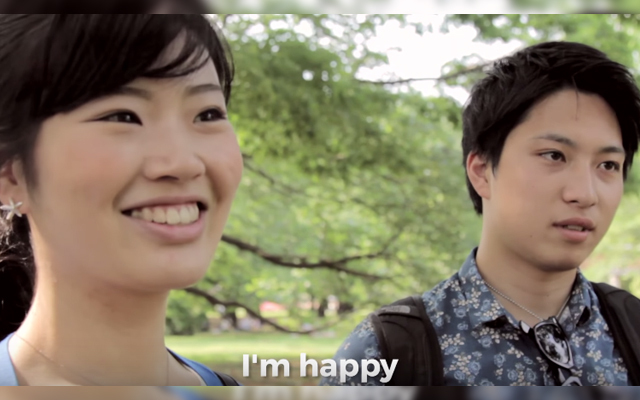Related Article
-

Fall asleep alongside Totoro and friends with these Totoro-themed sleeping goods
-

Adorably expressive cat makes remarkably funny faces when playing with (and missing) his favorite toy
-

Stroll down Showa period memory lane with nostalgic retro Japanese cafe sweets capsule toys
-

Japan’s new life-size moving Gundam statue unveiled in full dramatic glory
-

Noh Joke: You Can Get The Full Noh Theater Experience As One Of The Actors
-

Foreign Travelers Offered Soba Allergy Tests With Awesome Temporary Tattoos



As a country with high suicide rates, overworked employees, and many other social issues at its core, it is often questioned if Japan — despite being one of the most developed, technologically advanced countries in the world — is home to unhappy, unsatisfied citizens.
Hoping to get a candid response from the younger generation, Young in Japan, a YouTube channel that interviews young Japanese people on their take on modern society, asked men and women to share their thoughts on the word "happiness."
Interviewers asked several questions, such as "Which country do you think was the happiest in 2015?," "What do you think is the most important thing to achieve happiness?," and "Are you happy now?" These were their answers:
In many ways, the answers of these young Japanese men and women come as no surprise, and perhaps most other people walking the streets would have shared very similar comments. Living in a largely homogenous country with relatively low crime and poverty, many people are able to live life as strangers to extreme adversity, thus leading them to feel happier with their lives.
However, the opinions of the handful of people interviewed certainly do not represent the whole of the generation. Japan was ranked the 46th happiest country in the world, far lower than any of their expectations. The fact is, Japan isn't devoid of rampantly growing issues, including an aging society, rising unemployment and poverty rates, and massive government debt.
But could it be that, as long as they don't feel that such issues concern them in any way, many remain indifferent (even oblivious) to the fact that they exist, in turn leading them to assume that everyone else is just as content as they are?
It's an intriguing aspect of Japanese society that can be seen as both a blessing and a curse. It might be a blessing for those fortunate enough to spend their entire lives barely having to worry about financial stability, unemployment, or discrimination and the safety of their own lives. But holding a false belief that Japan is a perfect country is dangerous. As citizens of Japan, as well as the world, it wouldn't hurt to understand what problems are plaguing their country and everywhere else, and make an effort to stay educated and involved.
With that said, the mere idea that the majority of those interviewed felt happy should account for something. There's no way to refute that Japan is a country filled with many that feel the same, and perhaps that is the most important thing.
What do you think? Do you think a majority of the Japanese are purely as happy and at peace as these participants suggest, or do their answers actually reveal another issue: that too many simply live unaware — be it through ignorance or lack of interest — of the problems that may not affect them directly, but exist within society just the same?